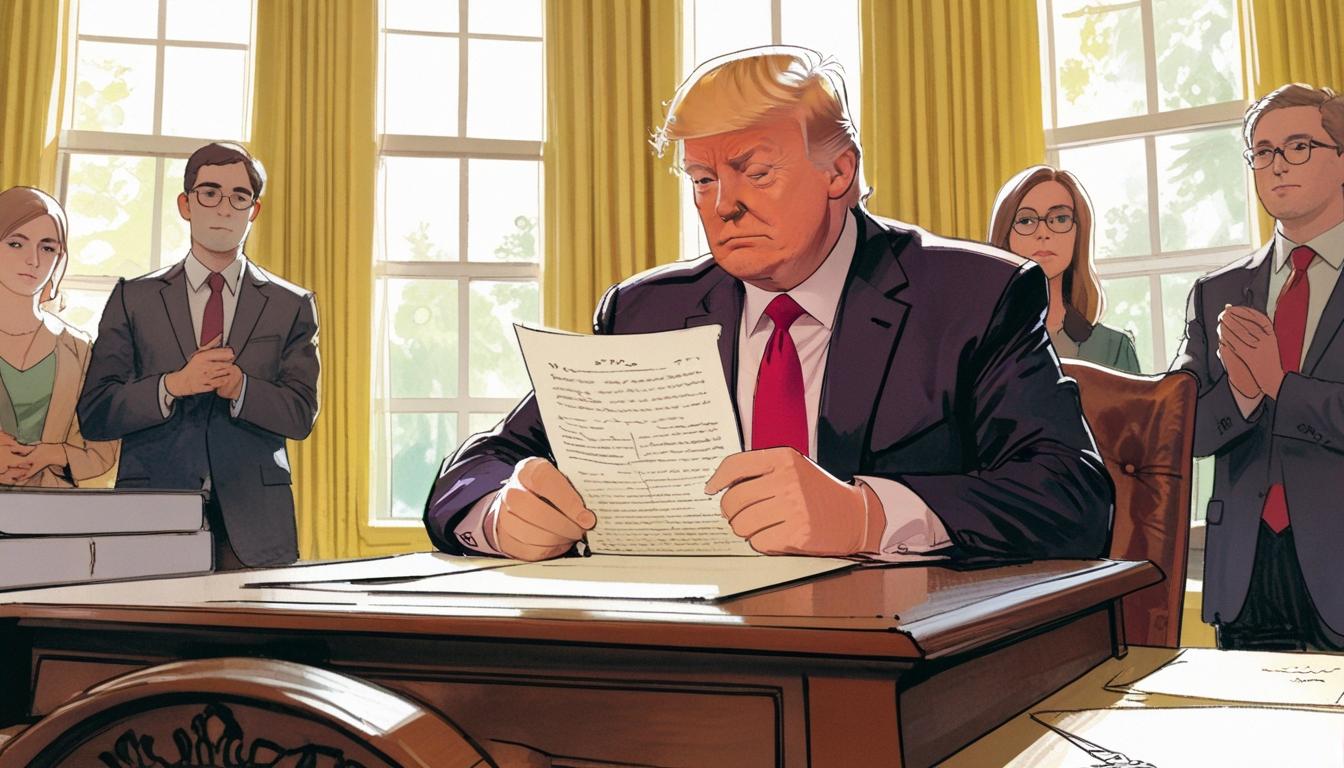On Wednesday, President Donald Trump signed two executive orders targeting the college accreditation system and university financial transparency, with a particular focus on prestigious institutions such as Harvard University.
The first executive order seeks to reform the college accreditation process by placing increased emphasis on measurable outcomes or "results" rather than what the administration describes as a focus on "woke ideology" by accreditors. Currently, colleges and universities rely on third-party accrediting bodies recognised by the Department of Education to maintain standards necessary for participation in federal student aid programmes. The order directs the Department of Education to hold accreditation agencies accountable if they fail to meet recognition criteria or violate federal law, and to begin recognising new accreditors. Included within this directive is a specific call to scrutinise accrediting agencies that impose requirements perceived as mandating "unlawful discrimination" in the name of diversity and inclusion.
White House staff secretary Will Scharf outlined the administration's position prior to the signing, stating, "The basic idea is to force accreditation to be focused on the merit and the actual results that these universities are providing, as opposed to how woke these universities have gotten." He further noted that changes would encompass law schools and graduate programmes, with "new accreditation pathways" set up to create a more effective framework.
During the signing event, President Trump remarked on the academic capabilities of students admitted to top universities, raising questions about their preparedness in basic subjects such as mathematics. He asked, "Will we look into the past people that they've taken? For instance, I hear all about certain great schools. And then we read where they're going to teach people basic math, math that we can all do very easily, but they can't do there." Scharf responded by affirming that accreditors should evaluate universities' admissions and teaching effectiveness, areas he felt were not adequately scrutinised currently.
The second executive order directs federal departments and agencies to enforce existing laws requiring universities to disclose large foreign gifts. Under federal law, higher education institutions receiving federal funds must report any gifts or contracts from foreign sources exceeding $250,000 in a calendar year. The administration argues that some universities, prominently including Harvard, have failed to comply adequately. Scharf stated, "We believe that certain universities, including, for example, Harvard, have routinely violated this law and this law has not been effectively enforced." He did not provide further details or evidence relating to these allegations.
Harvard University has been a focal point of tension with the Trump administration. Recently, the university filed a lawsuit challenging the administration's freezing of billions of dollars in federal funding, alleging it to be unlawful. The administration has also demanded extensive policy changes at Harvard and warned of potential loss of the school's tax-exempt status. Columbia University and other institutions have faced similar federal funding freezes amid accusations that they have insufficiently addressed antisemitism on their campuses.
In addition to these two executive orders, President Trump signed further initiatives aimed at improving Historically Black Colleges and Universities (HBCUs), enhancing artificial intelligence education in schools, expanding apprenticeship programmes, and supporting school discipline enforcement by educators.
These executive orders come amid ongoing debates regarding higher education standards, university governance, and the role of foreign funding in American academic institutions, marking a significant approach by the Trump administration to reshape the landscape of US higher education.
Source: Noah Wire Services
